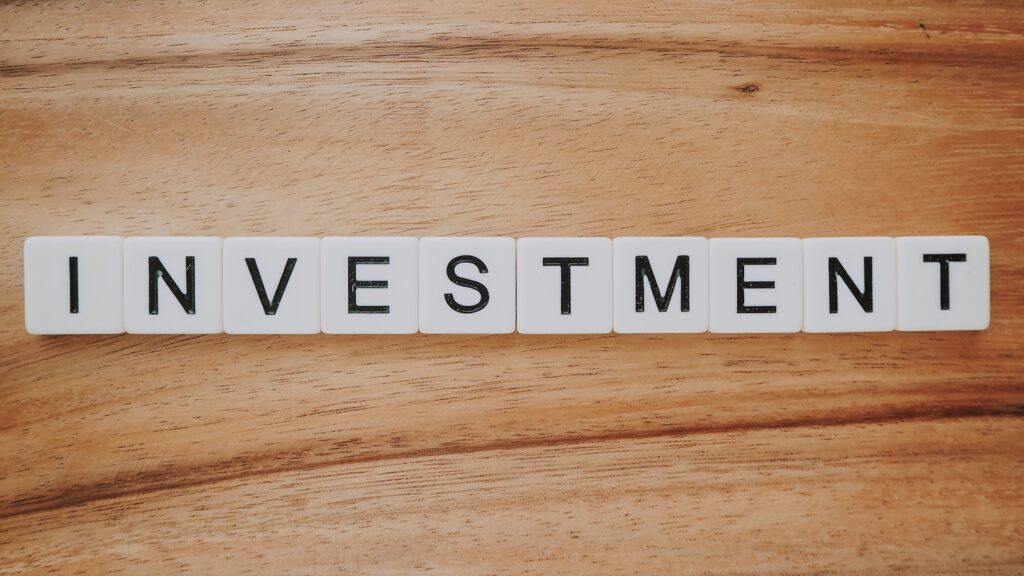If I talk about myself, I belong to the 1990s era. Regarding investing money, it is worth noting that individuals of the 90s generation were introduced to the concept of investing relatively late in their lives. However, our parents instilled in us the values of hard work and prudent saving. And without any doubt, many of us followed this path diligently. At that time most people did not know much about investment. According to a 2019 Charles Schwab survey, about 59% of Americans said they consider themselves savers. If you look at new studies, you will find that 63% of people in the same age group are struggling to survive on their current salary.
Why should you invest?
Saving is the main way to become rich and achieve financial freedom, but this is not entirely true. The biggest misconception about investing is that it is reserved for the rich. The fear that prevents most people from investing is justified: financial loss as opposed to financial gain. But if you take smart decisions and invest in the right places, you can reduce the risk factor, increase the reward factor, and, generate meaningful returns. In fact, there are plenty of investments now available for beginners, and that’s good news, because investing can be a great way to grow your wealth.
Investing ensures that your money keeps up with rising living costs due to inflation. Over time, a major advantage of long-term investing is that your earnings are likely to grow on top of your existing gains, known as compound interest.
How to start investing:
At its core, investing means figuring out your financial goals and choosing the right investments to help you reach them. This also includes knowing how comfortable you are with taking risks and handling them over time.
Once you understand what you want, all you have to do is move forward. You can decide to invest on your own or with the professional guidance of a financial planner. There are some points that are very important to know before starting investment.
- Decide your investment goal
- Choose an investment option
- Determine the amount you want to invest in your investment.
- Measure your risk tolerance
- Consider what type of investor you want to be
- Control your emotions
- Create your portfolio
- Monitor and rebalance your portfolio over time
- Learn from your mistakes
Best Investment Plans for Beginners:
As mentioned earlier, the world of investing can seem quite daunting, especially for first-time investors. Fortunately, there are a variety of options for beginners that meet a variety of goals, financial situations, and comfort levels. This blog will guide these commonly recommended options.
High-Yield Savings Account (HYSA)
If you want a higher return on your money but are nervous about investing a high-yield savings account is a good and easiest one. This is a good option for you to get maximum returns on your money without any investment risk.
High-yield savings accounts, usually available through online banks, generally offer better interest rates than regular savings accounts. They also give you easy access to your money. This can be an excellent option for stashing away funds to be used for purchases in the near future or for unexpected financial needs.
When you’re looking for a high-yield savings account (HYSA), it’s wise to explore your options. Different banks, like CIT Accelerated Savings, will offer you different annual percentage yields (APY). However, remember that the account with the highest APY is not automatically the top choice. Look for specific information about minimum balance amounts or any annual fees. This way, you can discover the HYSA that best suits you.
401(k) or another workplace retirement plan
This scheme offers one of the easiest routes to start investing and comes with significant benefits that can have a positive impact on your present and future. Many employers contribute a portion of your regular earnings to your retirement savings if you choose to save, too. If your employer offers this contribution, but you don’t join the plan, you’re essentially missing out on the free benefit.
Under this plan, your contributions are made before taxes are taken out, and your savings continue to grow without being taxed until you reach retirement age. Some employers offer Roth 401(k)s, where contributions are made after taxes. If you choose this option, you won’t have to pay taxes on your withdrawals when you retire. So, this is a very correct plan according to a long vision, which should definitely be taken advantage of.
Fixed Deposit
Fixed deposits are one of the most popular and easiest ways to save money. They are a safe investment, give good returns and are very easy to open. In a fixed deposit, you deposit a lump sum in your bank for a fixed period at an agreed interest rate. At the end of the tenure, you receive the amount you invested plus compound interest. If you withdraw money before the fixed time, you also suffer a loss on interest. FD is also called term deposit.
The good thing about fixed deposits is that they provide guaranteed returns. Even if interest rates fall after opening a fixed deposit, or there are any ups and downs in the market, you will continue to get the interest decided at the beginning. FDs are considered safer than investing in other assets like equities.
Mutual Funds
Instead of putting your money in individual funds, consider investing in mutual funds. A mutual fund is a huge pool of money held by many people who wish to invest it in money market assets including government bonds, corporate bonds, stocks, and commodities, among other things. In mutual funds, you buy a share, and a manager determines where to invest the money. This helps you diversify your investments and avoid keeping all your eggs in one basket. These lower costs help investors keep more of the fund’s returns and can be a great way to build wealth over time.
Mutual funds provide an attractive option for those who prefer not to invest directly because any profit or loss generated by the fund is distributed among investors based on their individual contributions.
Money Market Accounts (MMA)
Another low-risk option is a money market account – another type of savings account with a higher APY than a traditional one. Money market accounts, also known as MMDAs or money market deposit accounts, come with unique features not typically found in other account types.
U.S. The bank offers an attractive money market account option, which allows you to easily use a debit card or write checks while earning a better annual percentage yield (APY) than a regular savings account. It’s a smart way to save money with less risk.
Stock Investment
Investing in stocks, often called direct equity, is a powerful option for beginners in the world of investing. Although there is some risk in buying individual stocks, when done wisely, it can lead to long-term profits. When you buy stock in a company, you essentially own a part of the value of that company. This means that you directly support the growth and development of the company. By making stock purchases at the right time, such as when a business is in its early stages with promising prospects, you can see your wealth grow with the company’s success.
Government Schemes
You can also invest in some government schemes. The most popular government savings is the Public Provident Fund (PPF). PPF simply means a long-term investment plan, which is popular among individuals who want to earn high but stable returns. It comes with a lock-in period of 15 years and offers returns in the range of 7-9% per annum. Under this scheme, it is necessary to open a PPF account and claim a deduction under Section 80C on the amount deposited during a year. With its attractive interest rates and tax benefits, PPF is a big favorite among small savers.
RBI Bonds
Anyone wishing to invest their hard-earned money also has the option of investing in RBI bonds, also known as savings bonds. These are considered to be a very safe investment option, and they help you get higher interest rates compared to fixed deposits (FDs). RBI bonds have a fixed tenure. At the end of the term the money is repaid with investment income by way of interest. RBI will provide you with certification of holding to recognize your loan. On maturity, it will serve as authentication proof.
Currently, RBI bonds offer an interest rate of 8.5 percent.
Index Funds
Index funds are like mutual funds on autopilot: Instead of hiring a professional manager to create and maintain the fund’s investment portfolio, index funds track a market index. An index fund will invest money within a specific market index. For example, the S&P 500 is a market index that consists of the stocks of approximately 500 of the largest companies in the United States. The goal of an S&P 500 index fund is to mirror the performance of the S&P 500 by purchasing stocks in that index. The most interesting thing about index funds is that you can start investing in index funds for less than $100.

In a nutshell, investing holds great promise for those new to the financial world. Yet, before taking the plunge, beginners must take the time to acquaint themselves with the fundamental concepts of investment choices. This foundational knowledge will serve as a strong launching pad for their journey into the world of investing, helping them make smart choices and navigate the complex path of growing their finances.













